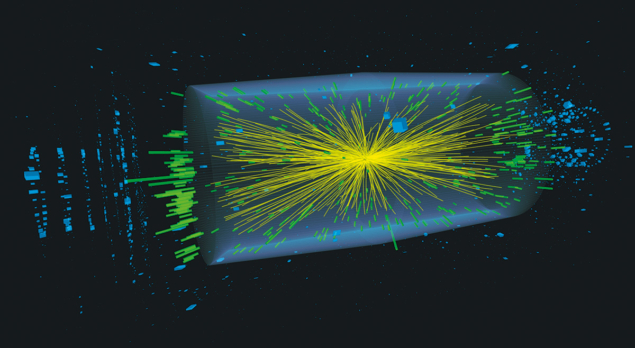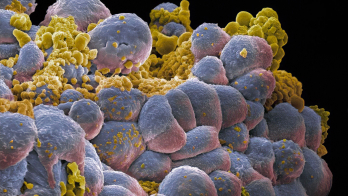Fast Machine Learning for Science Workshop.

The fourth edition of the Fast Machine Learning for Science Workshop was hosted by Imperial College London from 25 to 28 September 2023, marking its first venture outside the US. The series was launched in response to the need for microsecond-speed machine-learning inference for the High-Luminosity LHC (HL-LHC) detectors, in particular in the hardware trigger systems of the ATLAS and CMS experiments. Achieving this level of speed requires non-standard and generally custom hardware platforms, which are traditionally very challenging to program. While machine learning is becoming widespread in society, this ultrafast niche is not well served by commercial tools. Consequently, particle physicists have developed tools, techniques and an active community in this area.
The workshop gathered almost 200 scientists and engineers in a hybrid format. Students, including undergraduates, and early-career researchers were strongly represented, as were key industry partners. A strong aim of the conference was to engage scientific communities outside particle physics to develop areas where the tools and techniques from particle physics could be game-changing.
The workshop focused on current and emerging techniques and scientific applications for deep learning and inference acceleration, including novel methods for efficient algorithm design, ultrafast on-detector inference and real-time systems. Acceleration as a service, hardware platforms, coprocessor technologies, distributed learning and hyper-parameter optimisation. The four-day event consisted of three workshop-style days with invited and contributed talks, and a final day dedicated to technical demonstrations and satellite meetings.
The tools and techniques from particle physics could be game-changing
The interdisciplinary nature of the workshop – which encompassed particle physics, free electron lasers, nuclear fusion, astrophysics, computer science and biology – made for a varied and interesting agenda. Attendees heard talks on how fast machine learning is being harnessed to speed up the identification of gravitational waves, and how it is needed to handle the high data rates and fast turnaround of experiments at free-electron lasers. In the medical arena, speakers addressed the need for faster image processing and data analysis for diagnosis and treatment, and the use of fast machine learning in biology to search for known and unknown features in large, heterogeneous datasets. The use of machine learning in control systems and simulations was discussed in the context of laser-driven accelerators and nuclear-fusion experiments, while in theoretical physics the application of machine learning to solve the electron wave equation in condensed matter, working towards a detailed and fundamental understanding of superconductivity, was presented.
Industry partners including AMD, Graphcore, Groq and Intel discussed current- and future-generation hardware platforms and architectures, and facilitated tutorials on their development toolchains. Researchers from Groq and Graphcore presented their latest dedicated chips for artificial-intelligence applications and showed that they have interesting applications to problems in particle physics, weather forecasting, protein folding, fluid dynamics, materials science and solving partial differential equations. AMD and Intel demonstrated the flexibility of their FPGA platforms and explained how to optimise them for scientific machine-learning applications.
A highlight of the social programme was a public lecture from Grammy Award-winning rapper Lupe Fiasco, who discussed his work with Google on large-language models. The workshop will return to the US next year, before landing in Zurich in 2025.







